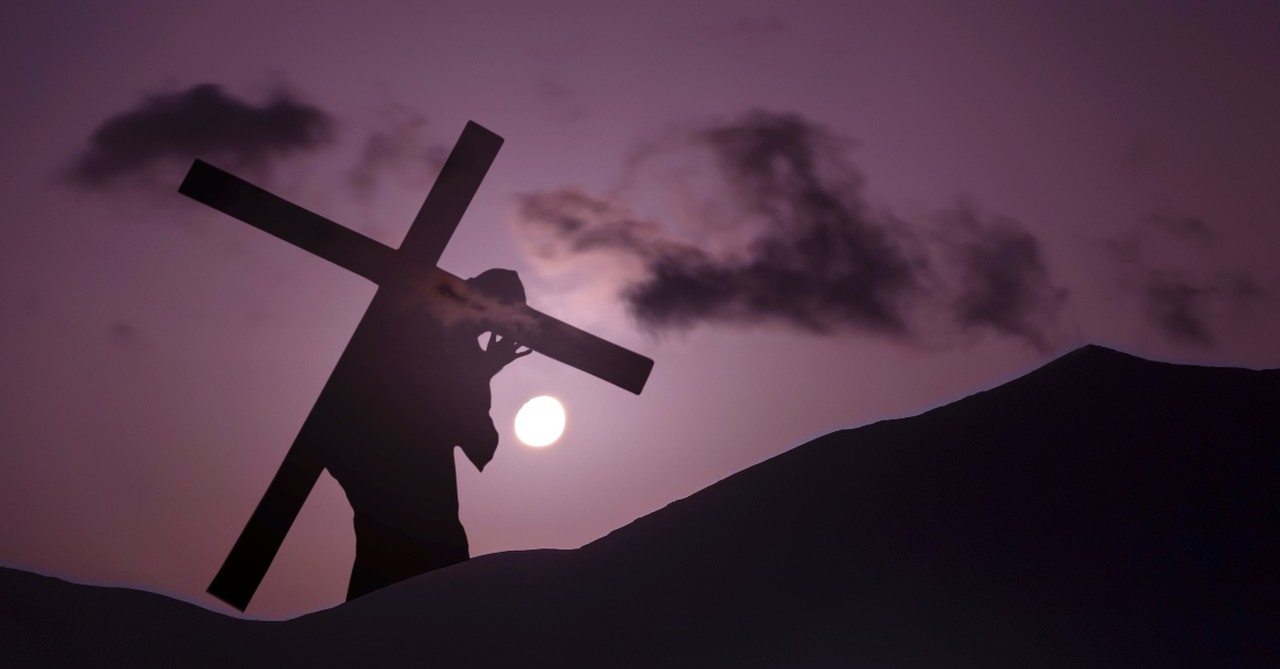5 Things to Know about Biblical Prophecy, Days of Darkness, and the Solar Eclipse

The connections between astronomical events and biblical prophecy have sparked curiosity and wonder since ancient times around the world. On April 8, 2024, a solar eclipse will take place across North America. Many people are wondering about its potential spiritual significance. Do Bible prophecies or stories, such as the three days of darkness, relate to solar eclipses at all? What biblical meaning can we discover from solar eclipses? Here are five key things to know about biblical prophecy and the solar eclipse of April 8.
Photo Credit: ©GettyImages/Pitris
Solar Eclipses and Biblical Symbolism Are Complex

Solar Eclipses and Biblical Symbolism Are Complex
SLIDE 1 OF 5
While solar eclipses are natural astronomical events that occur regularly on our planet, they are also spiritual reminders of our Creator’s power over creation. The alignment of the sun, moon, and earth during an eclipse reflects the intricate order of the cosmos that God has designed. As we ponder that, we can experience a powerful sense of awe. Solar eclipses can inspire us to move closer to God as we marvel at the glorious sight we see in the sky.
While the Bible doesn’t provide clear prophecies about solar eclipses, celestial bodies like the sun and moon can represent spiritual concepts in the Bible. The sun, with its life-giving light and warmth, has been a symbol of God’s loving power since ancient times. When eclipsed by the moon, this symbolism takes on added layers of meaning, representing the contrast between spiritual light and darkness. Solar eclipses can also evoke themes of divine judgment and renewal. In the Old Testament, celestial disturbances – including the darkening of the sun – are associated with the coming of the day of the Lord. These cosmic signs serve as warnings of impending judgment and the need for repentance and spiritual readiness.
However, it’s important to approach the symbolic interpretation of solar eclipses with caution and humility. While eclipses are significant events that direct our attention to our Creator, eclipses don’t necessarily connect to specific prophecies in the Bible. Attempts to attribute specific meanings or predictions to eclipses can lead to dangerous misinterpretation and speculation. We need to be careful not to make assumptions about what an eclipse means biblically. The Bible’s symbolism is rich and complex, defying simplistic explanations or narrow categorizations. So, instead of fixating on certain interpretations, it’s best to simply allow an eclipse to inspire us with wonder at God’s work. Eclipses are wondrous examples of the reality that Psalm 19:1 points out: “The heavens declare the glory of God; the skies proclaim the work of his hands.” Experiencing a solar eclipse has great spiritual meaning simply by serving as an occasion to feel awe and thank God for his work in our lives.
Photo Credit: ©GettyImages/Pitris
The Bible Includes Various Passages on the Sun Darkening

The Bible Includes Various Passages on the Sun Darkening
SLIDE 2 OF 5
The darkening of the sun is a recurring theme in biblical prophecy. A darkened sun may symbolize cosmic upheaval or divine intervention. Several passages speak to this phenomenon, including Isaiah 13:10, which foretells the day of the Lord – the culmination of God's redemptive plan – when: “The stars of heaven and their constellations will not show their light. The rising sun will be darkened and the moon will not give its light.” This verse is within a prophecy concerning God’s judgment of Babylon. It represents the upcoming intervention of divine justice.
Similarly, the prophet Joel speaks of the sun being turned to darkness in connection with the day of the Lord. Joel 2:31 proclaims: “The sun will be turned to darkness and the moon to blood before the coming of the great and dreadful day of the Lord.” Here, the Bible presents the darkening of the sun as a sign before a climactic moment in history, pointing to the arrival of God’s ultimate judgment and redemption.
The New Testament also references the darkening of the sun in the context of Jesus’ crucifixion. Reports from the Gospel books of Matthew, Mark, and Luke all describe how darkness covers the land for three hours – from 12 noon to 3 p.m. – during the crucifixion ordeal (Matthew 27:45, Mark 15:33, and Luke 23:44). This darkness shows the profound significance of Jesus’ sacrificial death to creation. It marks the climax of Jesus’ earthly ministry and redemptive work as the world’s Savior, paving the way for a new era in human history. The darkened sun also foreshadows the triumph of light over darkness through Jesus’ resurrection.
Other passages in the New Testament that describe the sun darkening relate to Jesus’ second coming. Jesus uses the imagery of a darkened sun metaphorically in Matthew 24:29 and Mark 13:24 to describe God’s judgment of sin and says that the sun will be darkened in the time preceding his second coming to Earth. In Luke 21:25, Jesus also mentions “signs in the sun” as well as in the moon, stars, and other parts of creation that will happen before his second coming.
These Bible passages invite us to ponder the mystery and majesty of God’s unfolding plan for humanity. Through astronomical phenomena like solar eclipses, we can develop awe and reverence for God that strengthens our faith and motivates us to trust him more.
Photo Credit: © Getty Images/mbolina
The Bible Also Mentions Three Days of Darkness

The Bible Also Mentions Three Days of Darkness
SLIDE 3 OF 5
In addition to reports of the sun darkening, the Bible also mentions periods of darkness lasting three days. Three days of darkness seems to represent God’s judgment of sin, as well as a demonstration of God’s power over creation that gets people’s attention, motivating them to obey God. The Bible uses the number three as a symbol of completeness or emphasis.
One notable instance happens in Exodus 10:21-23, during the Plague of Darkness on Egypt.: “Then the Lord said to Moses, ‘Stretch out your hand toward the sky so that darkness spreads over Egypt – darkness that can be felt.’ So Moses stretched out his hand toward the sky, and total darkness covered all Egypt for three days. No one could see anyone else or move about for three days. Yet all the Israelites had light in the places where they lived.” This darkness is so strong that people could feel it enveloping all of Egypt for three whole days. This plague shows Pharaoh God’s power and sovereignty over creation. It also compels Pharaoh to relent and release the Israelites from slavery. The fact that the Israelites have light where they live – even in the middle of the three days of darkness – shows their spiritual enlightenment as people who follow the living God.
The story of Jonah also features three days of darkness. Jonah 1:17 says that Jonah spent “three days and three nights” in the belly of a huge fish after fleeing from God’s call to preach repentance to the city of Nineveh. The environment inside a fish would be quite dark. Some Bible scholars have speculated that this period of confinement may have coincided with a solar eclipse. According to research featured on BibleArchaeology.org, scholars have identified solar eclipses that could potentially align with the timeframe of Jonah’s ordeal. While the exact dating of biblical events can be challenging, these astronomical findings offer intriguing insights into the possible phenomena in the sky during Jonah’s experience. Whether or not a solar eclipse directly coincided with Jonah’s three days of darkness inside the gigantic fish, the symbolism of three days of darkness in that story may represent the theme of God’s intervention and the powerful transformation that comes from repentance. It’s interesting that Jesus mentions Jonah’s experience in Matthew 12:40: “For as Jonah was three days and three nights in the belly of the beast, so will the Son of Man be three days and three nights in the heart of the earth.” This connects Jonah’s experience to Jesus’ own future death and resurrection.
Considering biblical passages about three days of darkness can enrich our understanding of the symbolic significance of events like solar eclipses. Unusual periods of darkness highlight the interconnectedness of celestial events and God’s purposes. Even when we can’t understand the full meanings of these events, we can gain inspiration from these stories that motivate us to seek God more.
Photo Credit: ©iStock/Getty Images Plus/kevron2001
Be Cautious When Interpreting Prophecies

Be Cautious When Interpreting Prophecies
SLIDE 4 OF 5
While potential connections between solar eclipses and biblical prophecies spark our curiosity, it’s important to approach interpretations with caution. The prophetic symbolism of solar eclipses and other Bible passages about darkness is complex. Attempts to pinpoint specific meanings can lead to misinterpretation. Rather than fixating on possible predictions, it’s more fruitful spiritually to allow both eclipses and prophecies to stir awe in our souls and lead us to deeper relationships with God.
Since God has given us strong minds that are capable of critical thinking, we should pursue wisdom about eclipses and prophecies carefully, with caution and humility. It’s vital to approach interpretations with discernment and a recognition of the limitations of our human understanding. Different Bible scholars sometimes reach different interpretations of biblical prophecies. So, rather than just accepting what we read or hear, we should study prophecies in the Bible ourselves and come to their own understanding. It’s useful to pray about what we read and ask the Holy Spirit to help us understand how to respond to it – knowing that God may not reveal the full meaning to us at our time in history. We don’t need to know details that God is not yet ready to reveal. All we need to know is how God wants us to respond to the prophecies in the Bible. As we read the Bible and apply its words to our lives, what matters most is that we keep growing in holiness. Attempts to predict or extrapolate specific events or timelines from biblical prophecy or eclipses can lead to misguided speculation and sensationalism. Throughout history, many people have made bold claims about the end times or apocalyptic events based on their interpretations of celestial signs – only to be proven wrong or misled.
Let’s remember Jesus’ own words that caution us not to try to predict the exact times of certain events mentioned in biblical prophecies. Jesus tells us in Matthew 24:36 about the timing of his second coming to Earth: “No one knows the day or hour. The angels in heaven don’t know, and the Son himself doesn’t know. Only the Father knows.” Later in that same chapter, in verses 42 and 44, Jesus emphasizes being prepared spiritually rather than trying to predict timing: “So be on your guard! You don’t know when your Lord will come. … Always be ready! You don’t know when the Son of Man will come.”
Instead of giving in to the temptation of speculative interpretations, it’s better to simply be humble and open to what God wants us to learn from the mysteries of the cosmos and the depths of biblical prophecies. As we humbly seek to learn more with clear minds and open hearts, we can experience wonder that deepens our faith – even without understanding the full details.
Photo Credit: Unsplash/Abed Ismail
Let Eclipses Inspire Us to Move Closer to God

Let Eclipses Inspire Us to Move Closer to God
SLIDE 5 OF 5
A solar eclipse presents us with a unique opportunity to draw closer to God. So, instead of getting lost in speculation about it, let’s just embrace the awe of experiencing the eclipse and let it inspire us to move closer to our wonderful Creator. The wonder of a solar eclipse invites us to contemplate the mysteries of creation and the boundless creativity of its Creator. The intricate motions of the sun, moon, and earth in their orbits shows us God’s beautiful design that sustains and upholds the entire universe.
The symbolism of a solar eclipse also invites us to ponder the contrasts between light and darkness – both physically and spiritually. Just as the sun temporarily yields its brilliance to the shadow of the moon, our struggle with sin in this fallen world can dim the light God has placed in our souls. But just as the moon moves away from the sun and the sun shines brightly as an eclipse ends, we can turn away from the darkness of sin and turn toward God’s light. Jesus is the Light of the World, who helps us throughout that process, so we can find true hope.
As we watch a solar eclipse, we often gather with friends and family members. We can marvel together at the beauty of the cosmos and the majesty of the Creator. In our shared awe and reverence, we can grow closer to each other as we grow closer to God. So, let’s celebrate God together as the source of all life and light. Watching an eclipse together is a wonderful opportunity for worship.
Ultimately, a solar eclipse gives us a valuable opportunity to worship God, who created us and our wondrous universe. Instead of seeking to decipher prophetic messages from a solar eclipse, it’s wise to simply let the eclipse give us a sense of wonder that moves us closer to God.
In conclusion, let’s look forward to the gift of experiencing an eclipse with gratitude and humility. We don’t need to worry about trying to understand the details of how specific biblical prophecies relate to the eclipse. In fact, getting preoccupied with trying to read too much into potential prophetic meanings can distract us from what matters most, which is simply loving God and each other. An opportunity to witness a solar eclipse is a gift from God. Let’s simply receive the gift of experiencing it, and let the awe we feel motivate us to develop closer relationships with God.
Share your thoughts on Biblical prophecy connecting to current events on Crosswalk Forums! Click HERE.
Photo Credit: ©Unsplash/Frank McKenna

Originally published April 05, 2024.









